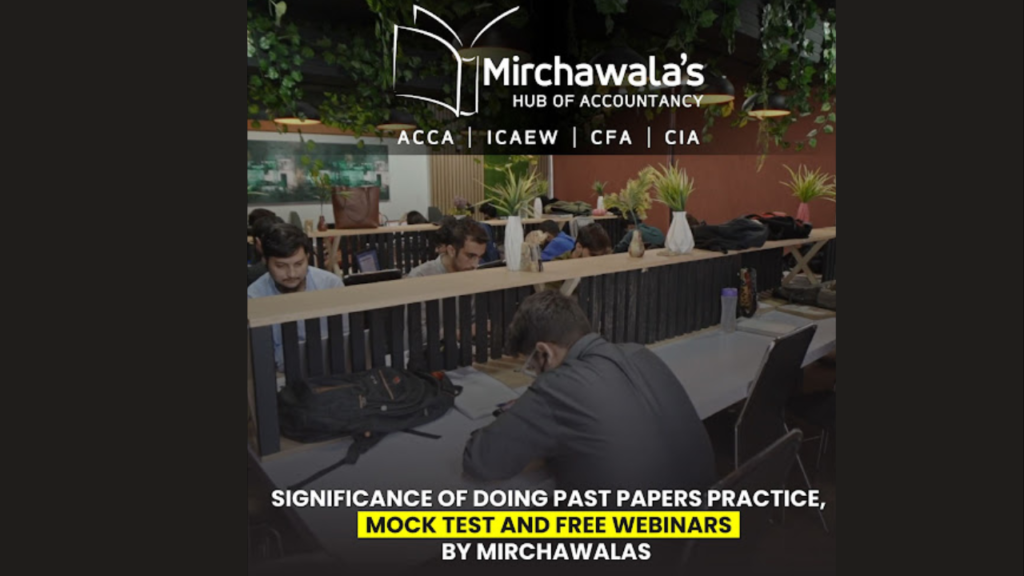What is the best way to pass the ACCA exam? Aspiring accountants and professionals who want to pursue careers in ACCA might find this question curious. This article is written by Mirchawala’s Hub Of Accountancy – the best institute for ACCA Qualifications.
A worldwide-renowned qualification, the Association of Chartered Certified Accountants (ACCA) demands knowledge of taxation, managerial accounting, and financial reporting, among other subjects. Using study strategies to maximize retention and learning to pass these exams would be best.
Think about obtaining expert advice from knowledgeable tutors at reputable institutions like Mirchawala’s to begin ACCA test preparation. They can offer professional advice, personalized study schedules, and insightful ideas to increase your chances of success. Expert advice might help you navigate complex topics and meet exam-specific needs. Get advice
Free ACCA Webinars for Last Minute Practice
Mirchawalas uploads free webinars for all ACCA papers so students can revise their concepts at the eleventh hour. These have been proven to be an excellent resource for our position-holder students. watch now
While there are numerous techniques to move on this route, practising with past papers and taking mock tests is one of the most efficient ways to prepare for the ACCA exams. Previous exams give you an idea of the format and type of questions and point out areas in which you need to improve. Plan time for mock tests to improve your exam strategy and boost your self-assurance.
This article will highlight the importance of mock exams and past papers for ACCA exam preparation and qualifying.
Understand the Exam’s Structure
Previous papers provide you with a clear understanding of the exam format and the kinds of questions and problems you might encounter. It’s not just about getting an answer ready for a particular topic; it’s also about knowing how to approach and organize an exam.
Know the Marks Allocation
Understanding how your grades are assigned is beneficial. Knowing which areas to focus on will not only help you pass the exam but also help you manage your time. The majority of students advise concentrating on the subject that has higher grades. So what occurs if you don’t receive the highest possible score on that subject or question? Thus, we suggest answering every question and treating them equally.
Evaluate your knowledge level.
You can know how well you comprehend an idea by doing past papers. This allows you to make corrections and discover anything you might have overlooked during your first study session. If you perform poorly on a topic, you may go back to the drawing board and refine the few things you found unclear.
Support You in Acquiring More Skills
When you give mock tests and practice on past papers, you will realize that there may be more than one method for answering the question. This can be gathered if one uses past exam papers. So, doing past exam papers improves your problem-solving skills and arms you with a variety of techniques to use for the exam.
In summary
Many learners reported avoiding writing mocks due to time constraints or anxiety. All these feelings are legitimate, but you will only know which areas you’re doing well in or which ones you need to improve on if you write a mock and score it. Do not approach a mock exam like a test if you are anxious about it. Instead, consider it a teaching opportunity to aid your exam preparation. The greater your practice, the more probable you will feel at ease and confident on test day. Without practice, you won’t pass.
If you’re seeking the best practice test and preparation platform for your ACCA exams, Mirchawala’s Hub of Accountancy is an ideal place for you. Candidates for the ACCA test have access to various study resources, such as lectures, practice problems, mock exams, and study notes. The study guide aims to give students a thorough understanding of the subjects listed in the syllabus. Through diligent curation of old papers and other content, Mirchawala simplifies it with examples from real-world situations.

